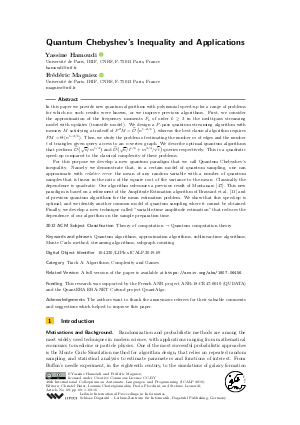LIPIcs.ICALP.2019.69.pdf
- Filesize: 0.61 MB
- 16 pages

 Creative Commons Attribution 3.0 Unported license
Creative Commons Attribution 3.0 Unported license




















































Feedback for Dagstuhl Publishing